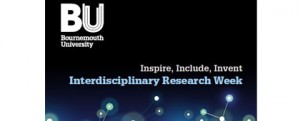 On Tuesday 12th May, Andy Ford, supported by Emily Norton, introduced us to the Landsat program, which has been running since 1972. The various Landsat satellites have been scanning the earth, providing researchers with images that can be compared to show changes in geographic features, such as glaciers and land use, such as deforestation in Brazil. Using the normalized difference vegetation index (NDVI), these images can be produced with both accuracy and consistency, allowing comparison over time. These images also reveal the extent of natural disasters, including the Boxing Day tsunami and the recent earthquakes in Nepal. It is important that scanning, rather than aerial photography be employed, as this allows for the production of images using wavelengths, such as near infra-red, which the human eye cannot see. These can then be represented in ‘false colour composite images’, revealing much more than photographs alone.
On Tuesday 12th May, Andy Ford, supported by Emily Norton, introduced us to the Landsat program, which has been running since 1972. The various Landsat satellites have been scanning the earth, providing researchers with images that can be compared to show changes in geographic features, such as glaciers and land use, such as deforestation in Brazil. Using the normalized difference vegetation index (NDVI), these images can be produced with both accuracy and consistency, allowing comparison over time. These images also reveal the extent of natural disasters, including the Boxing Day tsunami and the recent earthquakes in Nepal. It is important that scanning, rather than aerial photography be employed, as this allows for the production of images using wavelengths, such as near infra-red, which the human eye cannot see. These can then be represented in ‘false colour composite images’, revealing much more than photographs alone.
Where, then is the relevance to mass graves? Bringing together the disciplines of environmental science, phenology, archaeology and forensic sciences has allowed the research team to address the issue of mass graves, which can be complex and present geographical challenges. In Bosnia-Herzegovina, for example, there are over 200 excavation sites but over 10,000 persons still missing. Building on research conducted by Emily Norton, it was proposed that mass graves would, when compared with surrounding land, show vegetation growth with a spectral signature. This is where vegetation growth is weaker and the start of the season delayed. Using pilot research, including analysing a burial plot of animals following the UK Foot and Mouth epidemic in 2001, these assertions have been shown to be correct. This interdisciplinary technique can, therefore, assist in the location of clandestine mass graves, along with eyewitness testimony, geophysics, soil probes, geospatial techniques and aerial photography. Of these, the on-going analysis of the Landsat images may prove to be the most valuable.
Although covering a highly technical subject, Andy’s presentation was engaging, leaving the audience in awe of the science, whilst demonstrating, clearly, the value of working across disciplinary boundaries.
Inspired? Then go along to one of our other Interdisciplinary Research Week events.











 REF Code of Practice consultation is open!
REF Code of Practice consultation is open! BU Leads AI-Driven Work Package in EU Horizon SUSHEAS Project
BU Leads AI-Driven Work Package in EU Horizon SUSHEAS Project Evidence Synthesis Centre open at Kathmandu University
Evidence Synthesis Centre open at Kathmandu University Expand Your Impact: Collaboration and Networking Workshops for Researchers
Expand Your Impact: Collaboration and Networking Workshops for Researchers ECR Funding Open Call: Research Culture & Community Grant – Apply now
ECR Funding Open Call: Research Culture & Community Grant – Apply now ECR Funding Open Call: Research Culture & Community Grant – Application Deadline Friday 12 December
ECR Funding Open Call: Research Culture & Community Grant – Application Deadline Friday 12 December MSCA Postdoctoral Fellowships 2025 Call
MSCA Postdoctoral Fellowships 2025 Call ERC Advanced Grant 2025 Webinar
ERC Advanced Grant 2025 Webinar Update on UKRO services
Update on UKRO services European research project exploring use of ‘virtual twins’ to better manage metabolic associated fatty liver disease
European research project exploring use of ‘virtual twins’ to better manage metabolic associated fatty liver disease